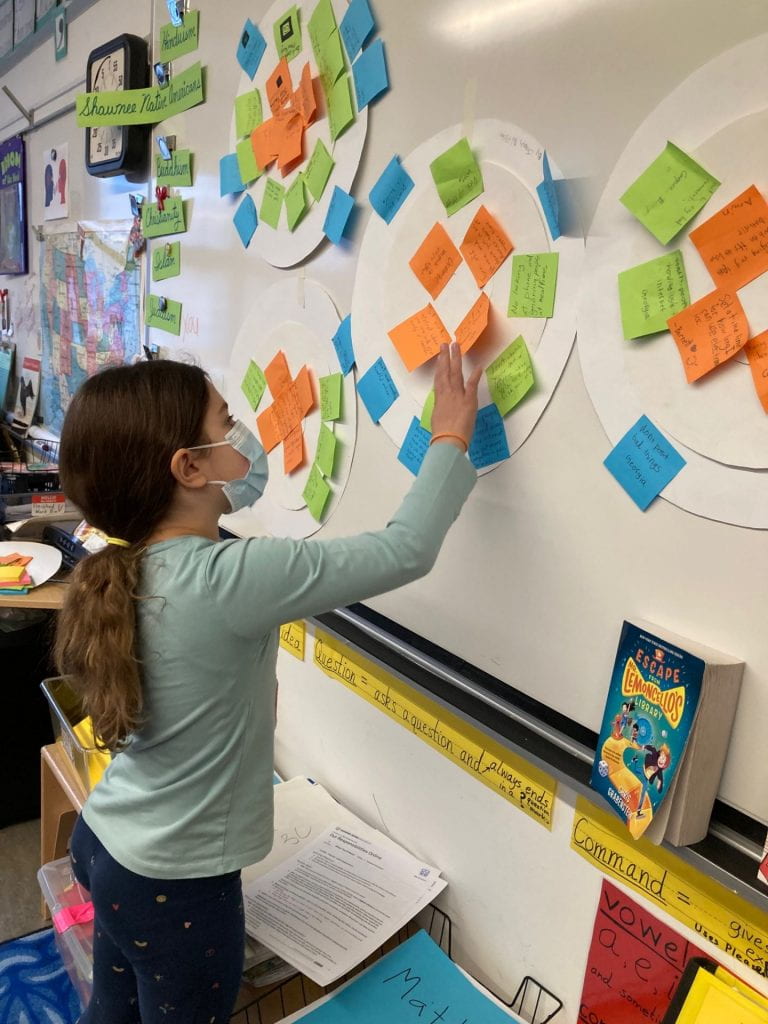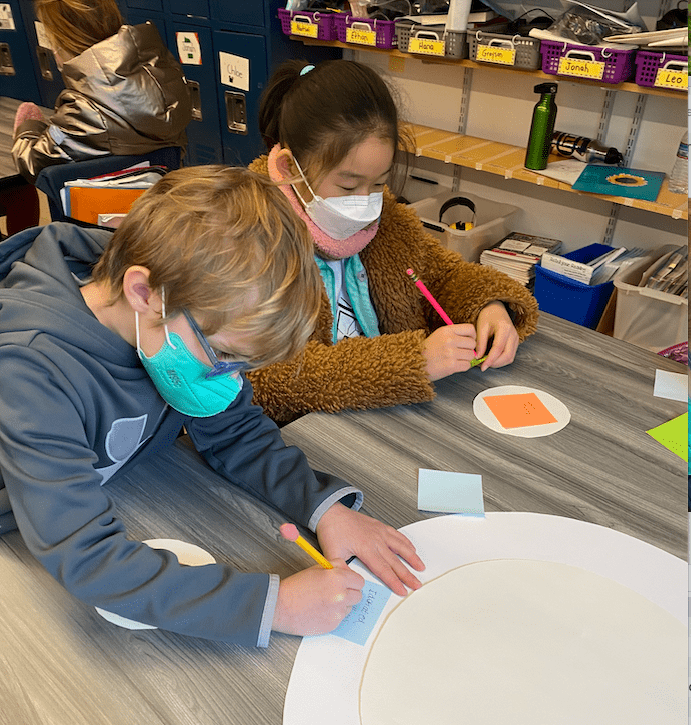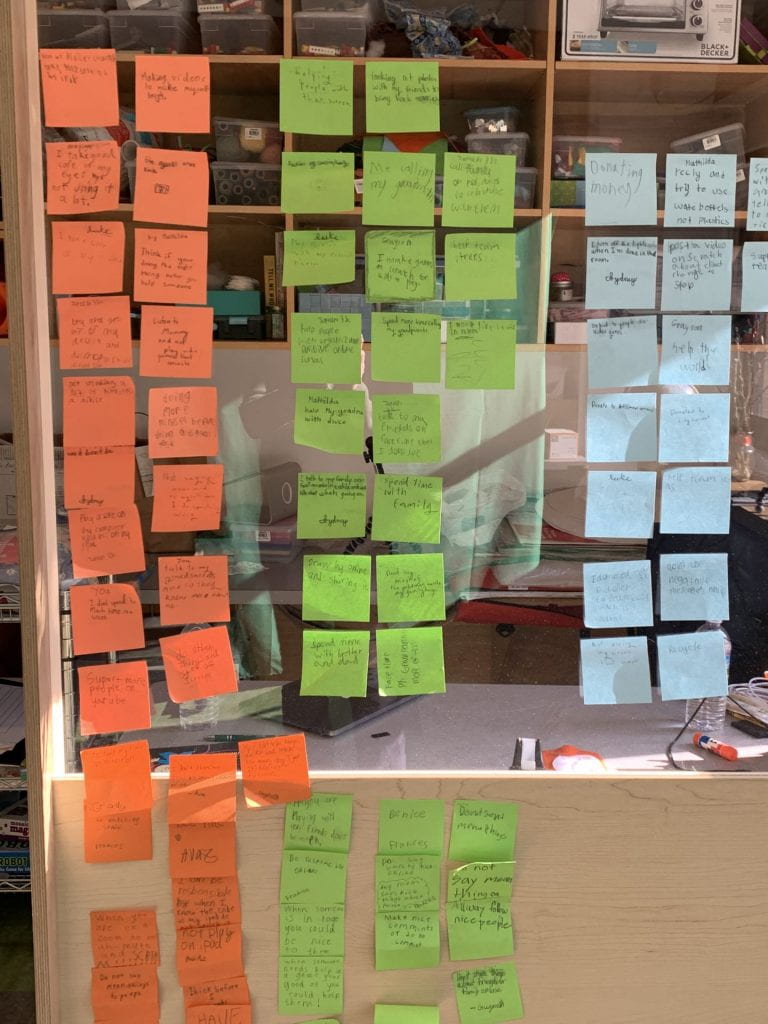
In the homerooms of 3C, 3Je, and 3Jo, all Third Graders all began a series of Digital Citizenship lessons by watching the Common Sense Media video “Rings of Responsibility.” It’s about how our actions can influence our lives, our communities and our world.
We then spoke about how actions in the digital world can also have ripple effects. According to Common Sense Media,
Teaching digital citizenship is all about helping kids think beyond themselves and recognize the ripple effects of their actions. Personal responsibility is important, but understanding their responsibilities to others can help kids unlock new ways to learn and connect with their communities — and even change those communities for the better.
To help students connect their own experiences to their understanding of Digital Citizenship, we then asked them to discuss and then use color coded post-its to write how they can be responsible to
Themselves
Their Families and Communities and
the World
when they are online. all the Third Grade homeroom teachers and I were impressed with our students’ thoughtful responses!

Here are a few examples from the inner ring where students provided examples of being responsible to themselves:
Make videos to make myself laugh
Give myself screen limits
Try to get off my device and do more things in real life
Doing more mindset before doing a digital task
Charge my iPad and make sure it doesn’t die.
Talk to my grandparents more so they know more about me
I don’t share too much personal information
The middle ring was for ways to be responsible to one’s family and community. Here’s a sampling of those good ideas:
Play games with my friends nicely
Help my grandma with her device
Looking at photos with my friends to bring back memories
I make games in Scratch for people to play
Call family on holidays to celebrate with them
I talk to my family on FaceTime and we talk about what’s going on
Drawing online and sharing it
When someone needs help in a game you are good at you could help them
Make nice comments or do not comment
Don’t share things about friends or family online
Stand up for each other if someone has a mean comment
Don’t click on something if you think it is a scam
Show Scratch project to Kindergarteners
Say nice things about people’s games in Scratch
Finally, the outer ring was for ways that students can engage digitally in the world.
This proved more challenging. Students were still able to come up with some powerful instances of helping others even beyond their family and community.
I turn off the lights when I’m done in the room
Be kind to people on video games
Don’t use negative messages online
Create an educational videos
Don’t send something hurtful online
We are following up these discussions by going through the Friends Seminary Third and Fourth Grade Digital Citizenship agreement and asking parents, caregivers and their children to read it, discuss it, and bring it back to Friends signed.



